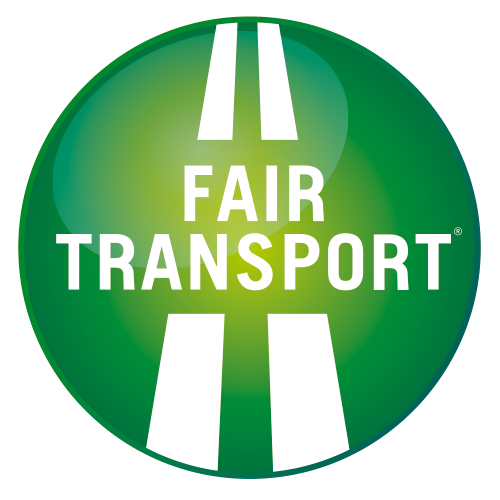Levels and criteria
Sub heading
In order to start the journey towards fulfilling national and international climate goals, and to embrace the opportunity to develop your business through certification, Fair Transport is also available in value-added levels, 1 through 3.
Basic requirements and criteria
When registering, the haulier needs to provide general information about the undertaking and its activities. This is essential for the evaluation of standards in the areas of climate, environment, road safety and responsible business conduct in order for them to be fair and comparable.
For example:
- A brief description of the company, such as its business model
- Employee and fleet data
- Tax information
- Operator’s license
- Environmental and climate policy
- Road safety policy
- Alcohol and Drug policy
- Policy against abusive discrimination
- Work environment policy
- Systematic work environment management/crisis management plan
- Follow-up on driving and rest times and road legislation compliance
- Speed limit monitoring
- Checklist for vehicles and drivers, safety checks including securing of cargo
- Routine for handling deviations
- Ensuring approved authorization for the drivers, eligibility and professional competence.
- Routine for control that inspections and services are carried out when they should
The following criteria change with the added value levels
- Collective agreement or labour law requirements
- Vehicles in commercial traffic. A maximum of 15 percent may be lower than Euroclass V (5)
- Fuel: At least diesel according to Swedish reduction requirement
- Ensures sobriety: Alcohol locks on less than 25 percent of the vehicles require a documented routine to ensure sobriety.
- Criteria (the 13 bullet points under Basic criteria above)
- Collective labor agreement with the Employers’ Association
- Vehicles in professional traffic, environmental class: not less than euro V (5), at least euro 50 percent VI (6)
- At least 40 percent CO2 reduction, average in 12 months
- Ensure sobriety, alcohol locks on at least 25 percent of vehicles
- Criteria (the 13 bullet points under Basic criteria above)
- Collective labor agreement with the Employers’ Association
- Vehicles in professional traffic, environmental class: not less than euro V (5), at least euro 70 percent VI (6)
- At least 60 percent CO2 reduction, average in 12 months
- Ensure sobriety, alcohol locks on at least 50 percent of vehicles
- Criteria (the 13 bullet points under Basic criteria above)
- Collective labor agreement with the Employers’ Association
- Vehicles in professional traffic, environmental class: not less than euro V (5), at least euro 90 percent VI (6)
- At least 80 percent CO2 reduction, average in 12 months
- Ensure sobriety, alcohol locks on 100 percent of vehicles
In addition to the requirements as stipulated for the different levels, the affiliated company must live up to the purpose and objectives of certification and have a plan to positively develop their environmental and climate criteria as specified in the value-added levels.
Purpose and objectives
Fair Transport contributes towards sustainable and safe transport services. Transport companies that are Fair Transport certified take responsibility, embrace road safety and take their environmental and climate impact seriously. With the help of Fair Transport, we can contribute towards achieving set climate goals, Vision Zero and create the right conditions for healthy competition on equal terms.
Var med och ställ krav för en trygg och hållbar framtid!





